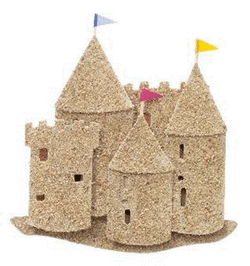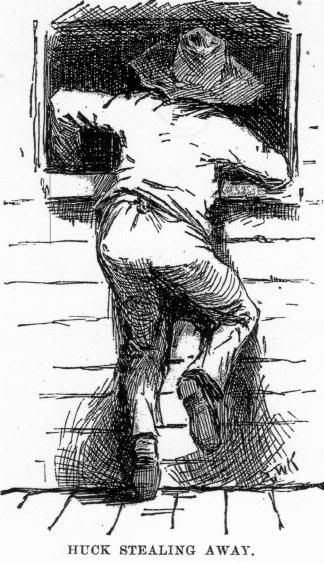that it wasn't necessary to read it....
Huck Finn seems to be such a part of our cultural memory
that it isn't even necessary to read it to sound like you have.
Cf. the strong animus against the "hypercanonization"
and "idolatry" directed toward the novel in Jonathan Arac's
Idol and Target (1997)

Thomas Hart Benton, "Huck Finn" (1936)
"Childhood is the Kingdom Where Nobody Dies"
Alternatively (?):
Childhood is the Place Where Jokes Are Allowed






